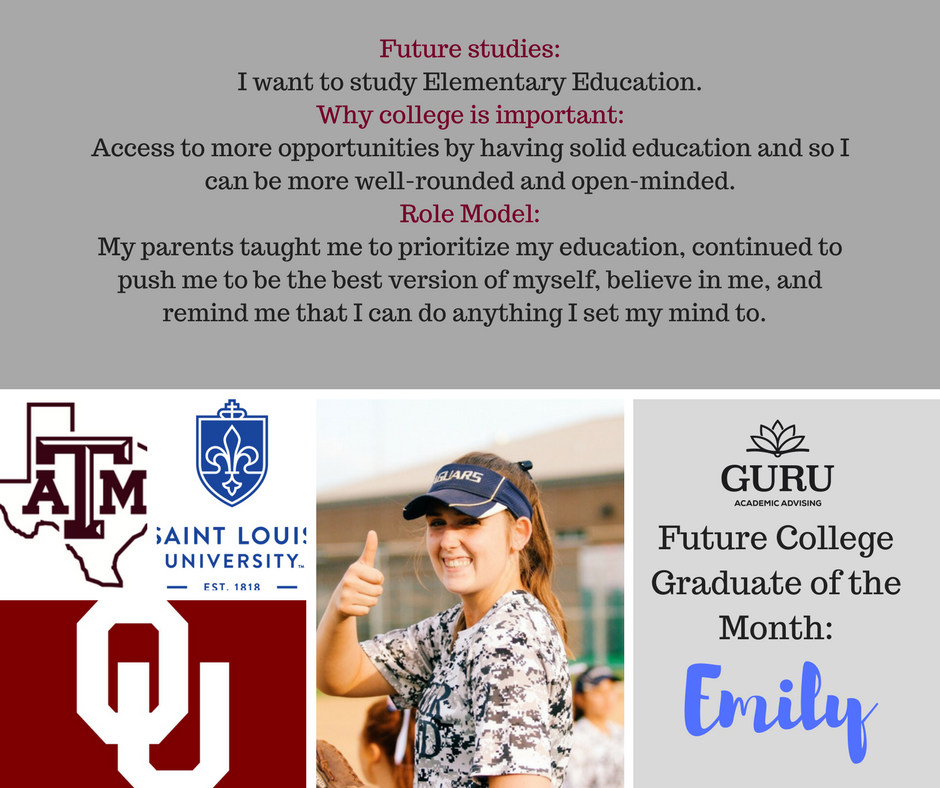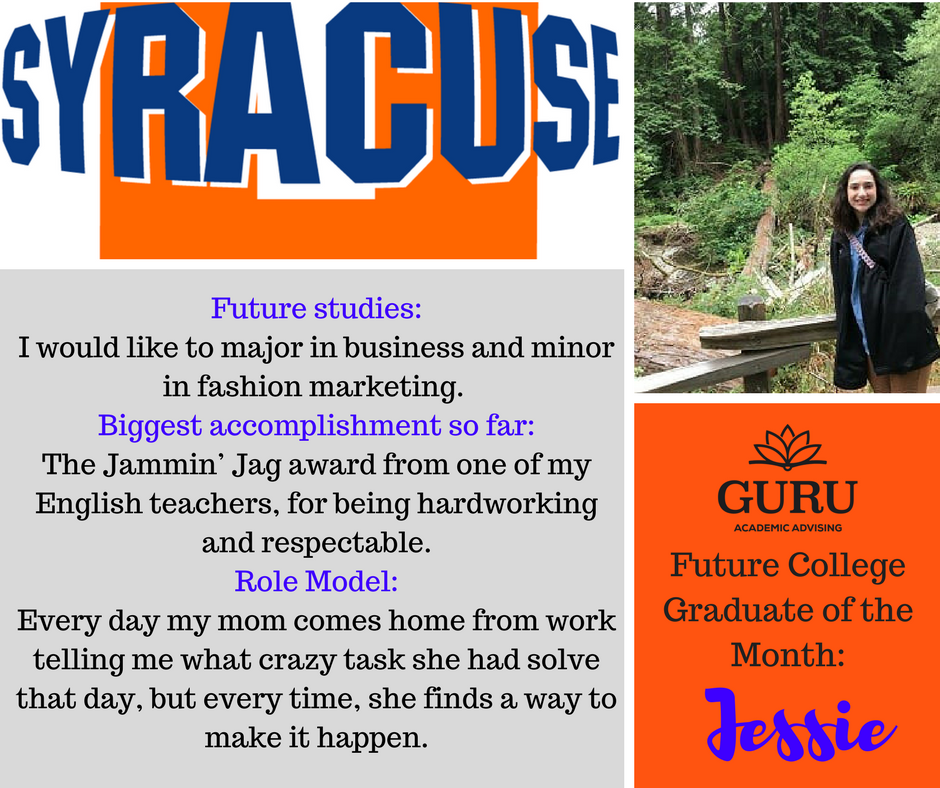Now’s the time to book that fall college visit (and here’s what to do while you are there)8/2/2017 I get it. It’s just barely August, and you aren’t ready to think about school yet. But there’s still that copy of Grapes of Wrath sitting on your nightstand to read before AP Lang and Comp starts up, and the school year will be here before you can say “Number 2 pencil,” so it’s time to be proactive!
Soon to be juniors and seniors: the next year will be full of a lot of college stuff for you (exciting!). One important part of those college plans should be a couple of college visits. As we are coming off summer, many of you may be just returning from adventures at various campuses around the US (or even the world!). These are valuable in their own right, but a summertime college visit isn’t the same as a visit when the university is in session, so I have a suggestion for you to consider now, while you have plenty of time to plan for it. Plan your campus visits for the next year (at least the fall) now. Whip out your high school’s academic calendar, and take a look at all the student holidays. Some of them are bound to be on random, non-holiday days. That’s what you are looking for! The best campus visits allow you to do four things:
These are the four things I ask students to do AT MINIMUM when they visit a school. You can’t do some of these during the summer, or even on the weekend. This is why the best campus visits are taken during the weekday when school is in regular session. Of course, it’s a pain in the booty to miss a day of school (just like it’s a pain in the booty to miss a day of work – this post is less helpful for the latter, but we have the school part covered!). So plan ahead by looking at the academic calendar and find those couple days in the school year where you have a school holiday but most colleges will be in regular session. Make a circle around them in 24 karat gold leaf, and then plan some visits. LISD kiddos, for example, you have some awesome prime-visit real estate on the calendar October 9th and 10th (a Monday and a Tuesday!). Want to go see Vanderbilt? Book it! Tulane calling? Start Google mapping it now. Here are some academic calendars for quick reference. Happy touring!
And one more pro tip: when you finish a visit, take time to write down EVERYTHING in DETAIL using a college visit reflection sheet. You can download ours for free right here. This is the kickoff post of a new feature: the Volunteer Opportunity Spotlight. Each week (that's the goal, anyway!) we will feature a new, local volunteer opportunity. Too often we hear students say they struggle to find ways to volunteer that fit their interest and are personally meaningful. We are out to solve that problem! There are so many great things going on in Flower Mound, Highland Village, Lewisville, Denton and Argyle (and the surrounding areas) that students should know about. Let's shine a spotlight on some of these awesome organizations and spread the word about ways to get involved starting with the Common Ground Community Garden in Flower Mound.
I reached out to Vanessa Bailey, the ministry leader for the Community Garden, and she shared this: "Our garden was established in 2015 to meet the needs of growing food insecurity in our area. We have approximately 1,300 sq of growing space dedicated to growing food for the North Texas Food Pantry in addition to two herb beds which are open for harvest to all community members. Our mission is to grow food for the needy and cultivate community with our neighbors over shared passions and purpose. We host an instructor lead workshop the first Saturday of every month and are open to the public daily. Our garden is located in the backyard of Church of the Resurrection and can also be accessed off the Purple Cone Walking Trail. Volunteer opportunities are posted weekly on our Facebook page or can be made via private assignment. We host large volunteer groups and individual volunteers, all are welcome in the garden! Thanks again for sharing our garden with your volunteer team. To date, we have served over 300 people in need, grown over 400 lbs of fresh produce and provide weekly fresh produce for Open Harvest and the Salvation Army food pantries. With your help, we can continue to meet the rising needs for food security in our area. Thanks for helping us, "grow the good"." She signed off on the email with "peace and carrots", which made this even better. If you love sustainability, ministry, and getting your hands dirty, consider spending some hours with Our Community Garden. Check out their Facebook page here: https://m.facebook.com/commongroundflomo/ And if you are looking for more volunteer opportunities, we've compiled a giant spreadsheet to help you out. BIG IDEA: The best personal statements (this is the type of essay you are writing for your college applications and scholarships) show off your personality and reach out to the reader as if you were sitting in the room having a deep and meaningful conversation about the core essence of who you are. The introduction is an important step in building to that goal. Your intro must engage the reader and compel them forward in your story.
How do I “engage and compel” my reader? There are three ways: 1. Present a problem that must be solved
2. Start with a detailed image that doesn’t at first make any sense
3. Just start the essay
If you are wanting a space and guidance to think through what to write about, how to approach this essay, and feedback on how to take it from good to great, you might be a good fit for our College Essay Workshop. It's an intensive but phenomenally productive two days. We cram the class time full of examples and instruction, then you draft in between sessions, getting high-quality feedback on day 2 from two instructors in a class size with low student numbers. Registration is here (three spots left). Please nominate us (Guru Academic Advising) using this link for Best of Denton County, College Planning. Thank you for your support!
Along with time at the lake, a job at Bahama Bucks, and mornings spent sleeping in, the college essay is the often a fixture of summer for rising seniors. Many students, however, run into a mental wall shortly after starting. What sort of topics are best to write about? How can I make my writing hold the reader’s attention while showcasing the types of qualities that will support a competitive application? How do I keep the essay from sounding braggy?
Writing the college essay is often the first time students are confronted with the task of writing a personal narrative. It’s an essay unlike anything they’ve written in school thus far, and if students try to approach it like an essay they would write for English class, there’s a good chance they will submit something rather mediocre. We wanted to start your summer off right by putting together a bunch of FREE resources your student can use to write a compelling personal narrative that strengthens their application instead of dragging it down. What’s a personal narrative? First, let’s define a personal narrative. A narrative is a fancy literary term for story. Your college essay is a personal story. A well-written personal narrative has focus and uses one story from the student’s life, allowing room or a deep dive so the reader can understand more of the student’s nuances and complexities. What does a strong personal narrative with focus and complexity look like? Great question. Example here, and here, and here. Oh, and try this one on for good measure. Ok, so where do I start? My best advice? Go sit at the top of a mountain for an hour and think about who you are. Want something more practical? Use this values exercise to clarify what matters to you most as a person. There are a couple pieces of advice that if you do nothing else for your college essay I’d want you to do these things:
Which prompt do I choose? Want to hear something crazy? My students don’t write to prompts (at least at first). I tell them to just write me a essay that tells me a story from their lives that teaches me something important about who they are. That’s it. That’s the heart and soul of the personal narrative anyway. Don’t limit your thinking by introducing a prompt prematurely. Also ignore word counts until the editing phase. Once the first draft is done, then go back and see which prompt it best aligns with from the Common App and Apply Texas. Just write Struggling? Just write. Put pen to paper or fingers to keys or even voice to recorder if you think aloud like I do and let the story flow, perhaps in a stream-of-consciousness the first time to see what’s there, perhaps in something a little more formed, but either way, just write. Ready to edit? Great. We have some handouts. First, see if the topic of your essay is falling into one of the categories for things we suggest not to write about. There are exceptions to this, but most students are well-advised to steer clear of the things listed here. Here are some suggestions on how to turn good writing into great writing. This handout was put together by Wendy Reimann, a professional writer who also partners with us for our essay workshops. Are your students younger and this is not quite on your radar yet? Have them keep a summer journal. Journaling is one of the greatest precursors to writing in the style of a personal narrative. Pick up a book of journal prompts from Barnes and Noble (and stop by my favorite place, The Flour Shop, while you are there!). Have your student do three prompts a week, with a paragraph minimum. Want to run through all of this together? We can do that. Option 1: Essay workshop (camp focused solely on the college essay) Option 2: College App Camp (essays + most everything else you need to apply) To teach her fledgling to fly, a mama bird will gradually stand further back from the nest with food, encouraging the baby bird to come out onto the limb to get it. The baby often falls, after a couple times realizes the fall can be softened by spreading its wings, and eventually this gives way to flight.
But every so often there’s a stubborn bird-ling who would seemingly rather starve than leave the safety and comfort of the nest. So mama bird, in her infinite and instinctual wisdom, shoves him out. As parents teaching our kids to be adults I think we’d all prefer the gradual approach of enticing our kids out on their own until they feel confident to fly the coop. But there really are times in life when we have to shove. If we don’t and we let our kids stay where it’s safe and comfortable for too long, we risk missing an important and formative window of self-actualization. I say all this as a “self-shover”. Many of my students have heard me talk about how painfully shy I was in high school. I was the type of kid who’d throw up on the way to the dentist, not because of any fear of dental work (no, that would be too rational and normal), but because I was afraid to talk to the dental hygienist. I literally made myself so nervous I’d throw up. I say this as the same kid who would make my three years younger sister order for me in restaurants because I was too afraid to talk to the waitress. In fairness (and because she always reads my posts) my mom did a fair amount of shoving. She forced me to talk to new people, stay in volleyball even though I cried all the way through tryouts (how I made the team is a miracle to this day), look people in the eye even though I was beet red and my cheeks burned, and get a job as at The Whole Enchilada to interact with new people in a “professional” setting. All this incrementally helped, but when it came to college, I took refuge in my acceptance to a highly selective institution that just happened to be a thirty-minute drive from home. I went home at least once a month on the weekends. I still had one foot in the nest. It’s a good thing God gifted me introspection, and eventually I came to the difficult realization that if I were to make the most of my life, I have to shove myself out of the nest. So I took as big a running leap as I could, and I went to study in Tokyo, Japan, for five months. By myself. It was the hardest, and most important, thing I’ve ever done. What I’ve learned in thinking about my own experience with growing up and what I see with the hundreds of students I’ve assisted in their own journeys is that growing up is incredibly hard. There are tears. There are times kids want to quit. There are normal low points where kids want so badly to crawl under the blankets of their childhood bed with a plate of mom’s chicken and rice with the family dog keeping their feet warm. So kids face two decisions:
Parents are in a tough spot. You dance the line between encouraging independence by letting kids struggle through natural feelings of doubt and panic and stress that are inherent in learning self-sufficiency, and care-taking when children need to still be children: loved, cared-for, and safe. I don’t have a magic formula for when to swoop and when to shove. But I do know that there are ways to build in a more graduated release of responsibility and independence that will help smooth your child’s transition later on. Here are some ideas:
Mama-birds (and papa-birds), I know the dance is tough. I wish you all the type of children who willingly climb out on the limb through your incremental enticing until they fly with their full might. But if you have a bird who needs a little shove, I wish you, too, the encouragement to shove lovingly knowing you’re doing the right thing, tough as it may be (and loud as they may squawk). I’m done birding around now. Have a great week, everyone! It’s likely not a surprise that (most) students will have to write essays as part of their college application process. Yet, many are stumped when they see prompts like these:
“Tell us about the most significant challenge you’ve faced or something important that didn’t go according to plan. How did you manage the situation?” -- MIT “The lessons we take from failure can be fundamental to later success. Recount an incident or time when you experienced failure. How did it affect you, and what did you learn from the experience?” – The Common App “If you feel you are in a black hole, don’t give up. There’s a way out,” Stephen Hawking said. Describe a time you faced a problem that seemed impossible to solve. What did you do to find a solution?” – Oklahoma State University These students wrack their brains, look at their resumes of successes, and freeze. The F-word! They cringe. Their whole lives they’ve successfully avoided any sort of failure (yes, that f-word) only to find it’s everywhere in their college essays! Is it a trick question? If they divulge a weakness are they dooming themselves to the “no” pile? I’ve learned a few (well, actually a ton) of things having worked with students in the college application process for many years now. One of those things is that they don’t know how to fail, so when it does finally happen (and it will because life is full of failures), it’s debilitating—even crippling in many cases. Their self-image, self-worth, and self-confidence is blasted by what should be a normal engagement in appropriate exploration or risk-taking. I’m saddened, deeply, when I hear of a student who diligently worked on an application for a summer research fellowship, gathered her materials and letters of recommendations, wrote and rewrote her essay with insight and depth of thinking, only to open her email to see, “On behalf of the admissions committee we wish to thank you for your application…” But I’m alarmed when the student devolves to tears and isolates herself for the following week, neglecting her studies and other activities. Or when a student is not selected for a scholarship when one of their “less talented” peers is, and refuses to apply to anymore believing it’s a waste of effort and time. Many students haven’t been taught they are not entitled to opportunity. In the great big world of adult-life, hearing “no” is normal. Think about what we know to be true (and important) in our lives as capable adults. When you are job hunting, do you send out one resume and wait expecting a yes answer? Do you expect even a response to each resume you send out? No. Do we only begin only those things which offer us a guarantee of success—do we want that for ourselves and our children? I’m decently confident the answer is no, and I think we as adults all understand and accept failure on a regular basis. But the question is this: how do we expect our children to do the same? If we do not encourage and normalize failure in high school (or earlier), we are leaving them to figure it out on their own later in life – in situations that are less safe and more high stakes. Colleges know this, and they also know that failure is nothing to be ashamed of. Failure is the result of risk-taking, and exploration, and often curiosity. Failure is going to happen in college, in small, or maybe big, ways. And colleges want kids who are prepared to not only "deal" with that in a healthy way, but leverage the failure to improve themselves, their ideas, and their communities. Hence, there are lots of essays asking students to reflect on their failures. Here’s my suggestion: normalize failure. Let your kids get used to hearing no. And let it sting. I have little kids, and already I know how difficult it is to see my child upset because I’ve denied her something that would make her genuinely happy. I imagine that gets even harder as they get even older and work for things they may not end up getting (leadership positions, summer opportunities, spots in an admitted freshman class at an Ivy League school). Don't swoop in to justify their shortcoming by blaming other factors to preserve their egos (and sometimes our own). Let it simmer and shake, then let them move on. They will fail, and you will be there to teach them and help them understand the failure in context instead of be there to fix it for them, as much as you may want to (or be able to – that’s where this gets really tricky. When parents have the power to fix their student’s failures, sometimes that’s not in the long run the best thing for the student). Teach them instead to see the “no” as an acronym (I’m about to get cheesy on you, watch out). N.O. stands for New Opportunity. If you can’t do the thing you wanted to do (you failed--I said it! And it's okay!), try something else out. There are many ways to reach success, and no one guarantees that the first thing you try is the thing that will work. Teach resilience by helping them learn how to use a growth mindset in which they learn to view failure as a New Opportunity (a N.O. moment--cheesy right? But kinda spot on). The added bonus is that they will end up with a killer essay topic for their MIT application. |
About Us
We are a full-service academic advising and college planning team. We started up shop in 2013 because we are passionate about helping students pursue opportunities for elite higher education. Need help? Want to know more? (972) 755-9507 Archives
September 2019
Categories
All
|










 RSS Feed
RSS Feed
